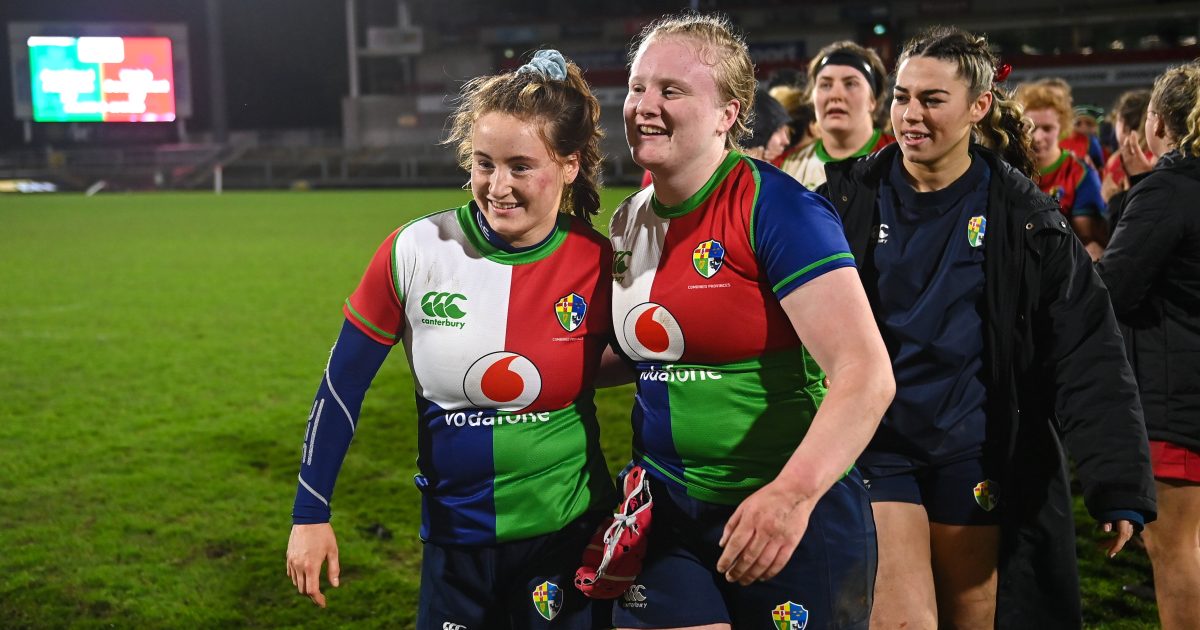Celtic Challenge to return for an expanded 2024/25 season

The Celtic Challenge will expand when it returns for the 2024/25 season, increasing to ten rounds starting in December 2024.
The expansion of the competition from eight rounds to ten provides vital preparation for Irish, Scottish, and Welsh players ahead of the Women’s Rugby World Cup 2025.
The 2024/25 season will see the competition played from December until March with five home and five away matches for each of the six teams: Edinburgh, Glasgow Warriors, Brythion Thunder, Gwalia Lightning, Wolfhounds, and Clovers.
The last edition of the Celtic Challenge saw Wolfhounds crowned champions in Belfast after an undefeated competition, culminating in a 47-26 victory over Irish rivals Clovers.
Since its successful pilot season, the first women’s cross-border club competition has seen 68 competitors go on to be involved in this year’s Guinness Women’s Six Nations, with eight making their international debuts.
World Rugby’s investment in the competition strives to increase competitiveness ahead of the Women’s Rugby World Cup in 2025, and now with 30 matches in the season, this will only be elevated ahead of the tournament in England.
The success of Celtic Challenge players on the global stage was shown in particular with Ireland’s third-place finish at the Guinness Women’s Six Nations and subsequent RWC 2025 qualification featuring many of the club competition’s stars.
Katie Corrigan, who scored a hat-trick in the final match for Wolfhounds, Dannah O’Brien, and Aoife Wafer were among those making their mark for Ireland after competing in the Celtic Challenge, while the likes of Alex Callender and newly capped Gwennan Hopkins impressed for Wales after representing Brython Thunder and Gwalia Lightning respectively.
For Scotland, Alex Stewart made her international debut after the Celtic Challenge season and featured in the Scotland squad alongside familiar faces from the competition such as Cieron Bell and Emma Orr.
Gillian McDarby, Irish Rugby’s Head of Women’s Performance & Pathways said: “Last year the Celtic Challenge competition provided valuable game time for emerging talent and is an important platform for growing the game in Ireland. With the continued investment in developing our pathways, the competition remains integral to ensuring we have a competitive Irish national team.”
Nigel Walker, Welsh Rugby Union’s Executive Director of Rugby, said: “The Celtic Challenge is a key part of the Welsh Rugby Union’s strategy for the women’s game in Wales and has already seen the likes of Gwennan Hopkins, Sian Jones, Molly Reardon, Catherine Richards and Mollie Wilkinson play in the tournament and then make their Wales debuts in the recent Six Nations campaign.
“It has already proved its value from a performance point of view and players and coaches will see it as a pivotal step in the pathway to professional and international recognition. We are highly ambitious around the Celtic Challenge and our two teams – Gwalia Lightning and Brython Thunder. We believe it has just scratched the surface and has an exciting future.”
Gemma Fay, Head of Women & Girls’ Strategy at Scottish Rugby added: “The 2023/24 iteration of the Celtic Challenge has been successful for Scottish Rugby in supporting us to provide another step in our pipeline to international rugby in Scotland. We have seen 35 players move from our pathway to playing for Edinburgh Rugby or Glasgow Warriors, with six of those training with Scotland Women during the Guinness Six Nations including Alex Stewart who earned her first cap.
“The expansion of the competition this season has also given us strong benchmarks to work from both on and off the pitch – from results, player development, media to spectators – and we look forward to exploring how we can further support this for next season.”
New tickets for Women’s Rugby World Cup 2025 are now available, with prices starting at £10 for adults and £5 for children. Buy now!





























